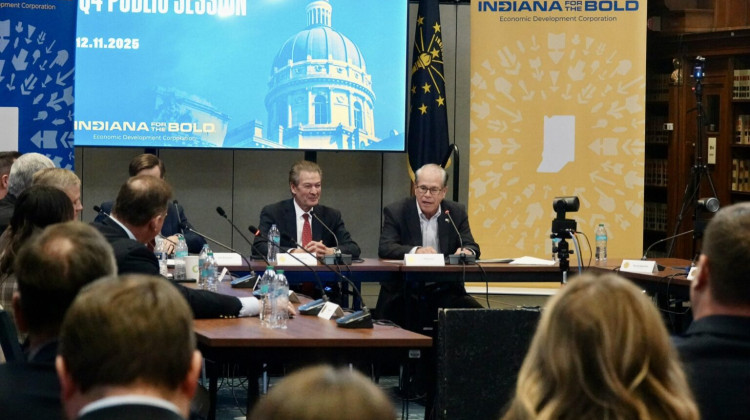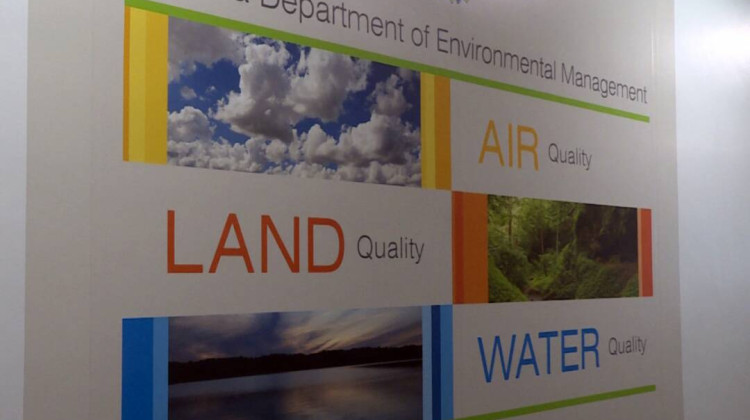It may get easier for underserved communities with failing septic tanks to get water and sewer systems. A state House bill addressing that issue passed out of committee by a unanimous vote on Tuesday. But the bill doesn’t cover everyone who needs help.
According to the Indiana Department of Health, every year more than 20,000 septic systems need to be repaired or replaced. Failing septic systems can leak wastewater into local streams and lakes. It can also get into drinking water wells and make people sick.
Extending new water and sewer lines can be expensive.
“We regularly receive requests for main extensions. We’ll do the numbers. Unfortunately it’s too expensive for those individuals to be able to afford to pay those in developed areas where the costs are often high," said Justin Schneider, director of consumer affairs for Indiana American Water.
This bill would allow a utility to waive that cost for underserved communities and raise rates on its existing customers instead. The utility would have to show that adding these new customers would bring rates back down in the long run.
READ MORE: How Do I Follow Indiana's Legislative Session? Here's Your Guide To Demystify The Process
Join the conversation and sign up for the Indiana Two-Way. Text "Indiana" to 73224. Your comments and questions in response to our weekly text help us find the answers you need on COVID-19 and other statewide issues.
Rep. Carey Hamilton (D-Indianapolis) supports the bill. But because it only applies to investor-owned utilities, she says it doesn’t cover many of the people who have failing septic systems — those who would likely be served by municipal and nonprofit wastewater utilities.
“So there’s a bigger conversation in here that I hope we can generate this session," Hamilton said.
Kerwin Olson is the executive director of the Citizens Action Coalition. He says the group also supports the ideas behind the bill, but that there’s nothing in place to guarantee those rates will go down in the future.
A bill that would create a task force to study wastewater issues is also working its way through the legislature.
Contact Rebecca at rthiele@iu.edu or follow her on Twitter at @beckythiele.
Indiana Environmental reporting is supported by the Environmental Resilience Institute, an Indiana University Grand Challenge project developing Indiana-specific projections and informed responses to problems of environmental change.
 DONATE
DONATE









 Support WFYI. We can't do it without you.
Support WFYI. We can't do it without you.